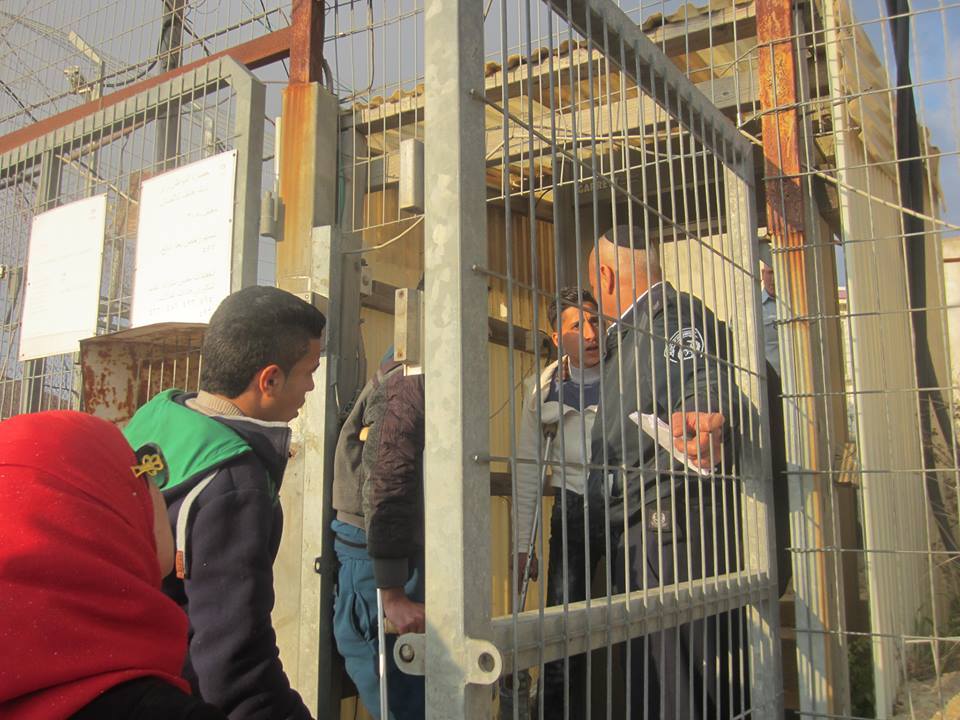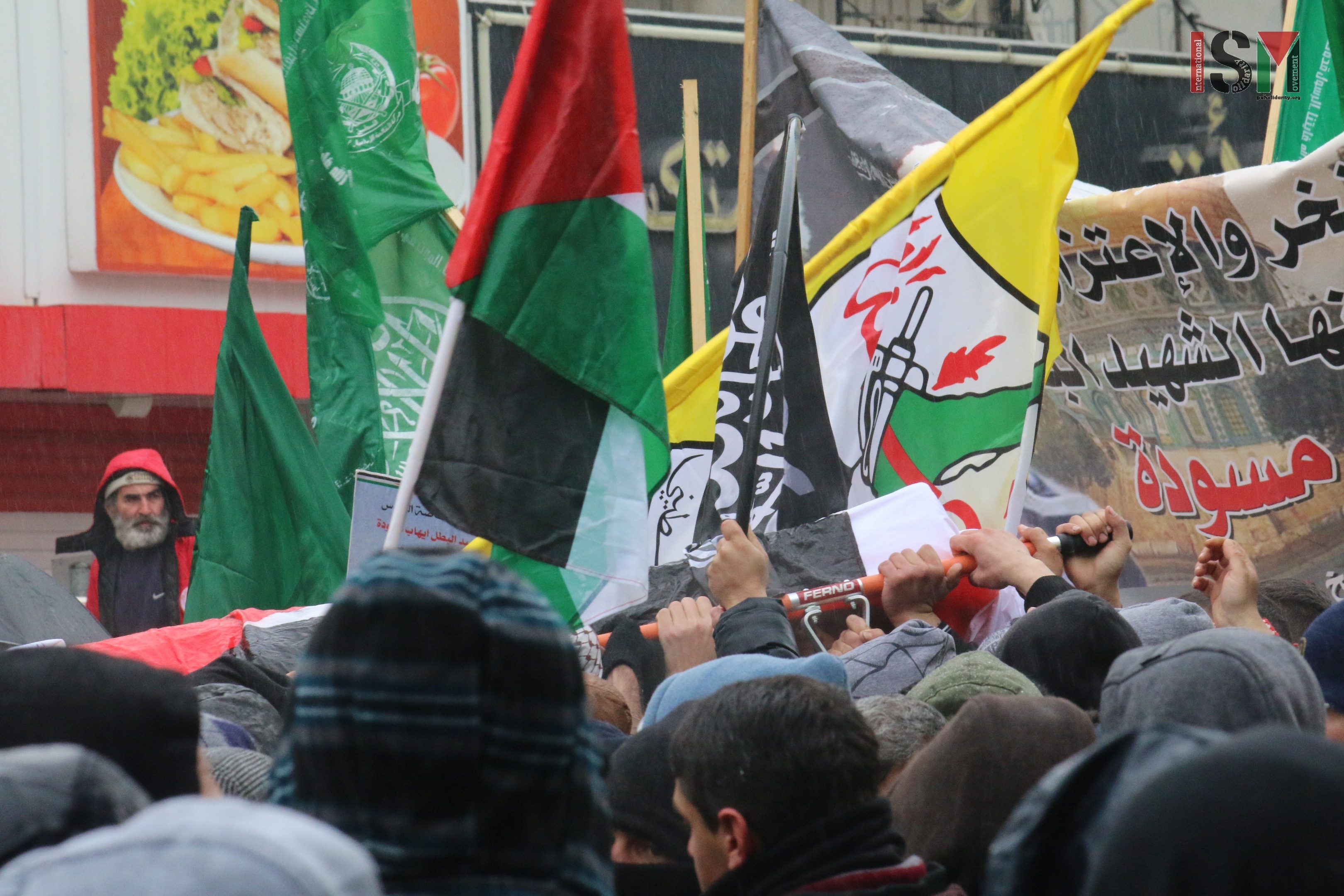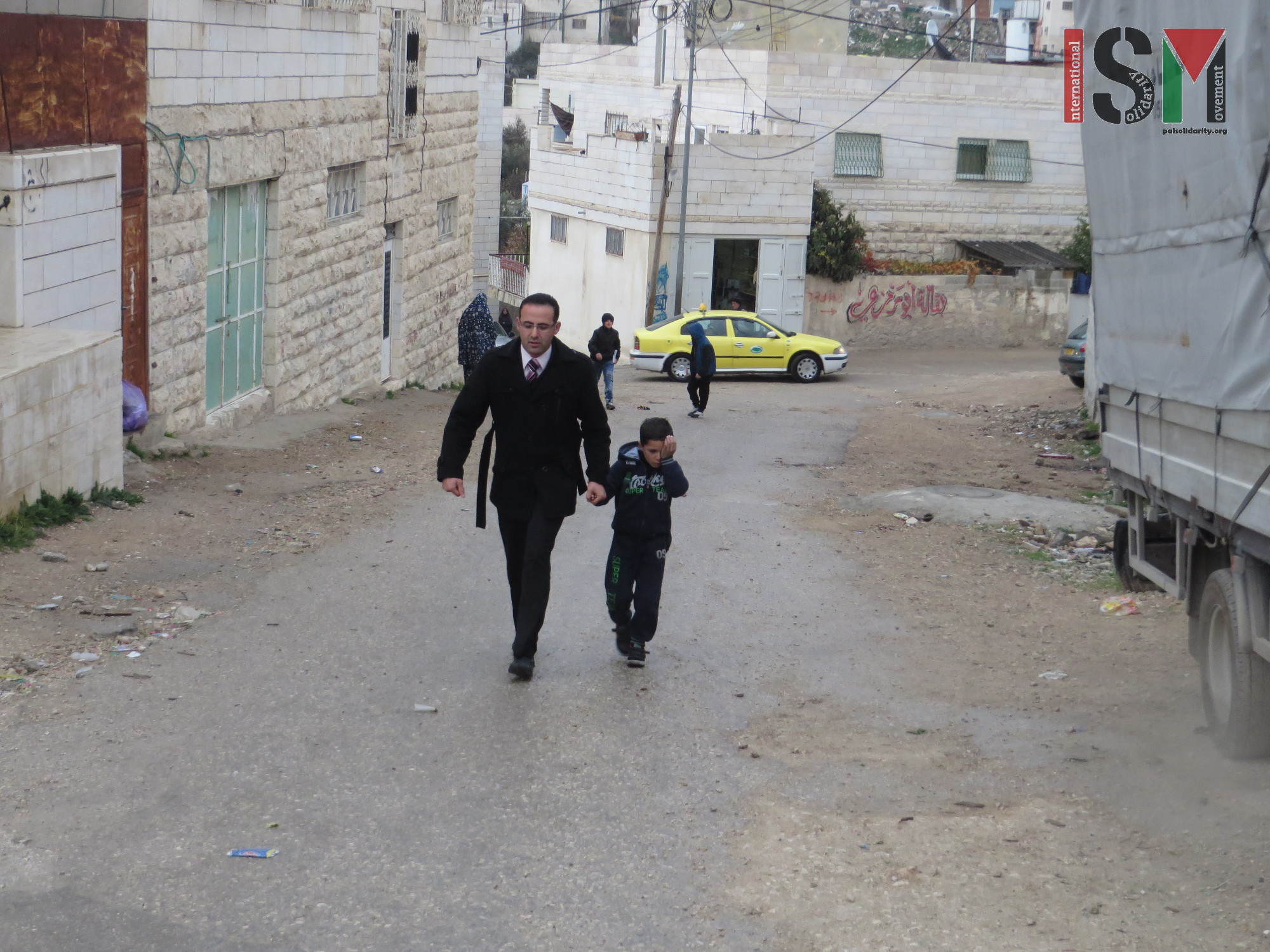Tag: Israeli Army
-
Palestinian families deeply concerned about the safety of their children
The three boys – Awne Abu Shamsiyye (16 years of age), Moataz Irfaiie (17 years of age) and Nizzar Salhab (16 years of age)- who were shot on their way home on the evening of the 1st of December have since then been harassed by Israeli forces and their families have been left in the…
-
14 Palestinians finally laid to rest in occupied al-Khalil
2nd January, 2016 | International Solidarity Movement, al-Khalil team | al-Khalil, occupied Palestine On the 2nd of January 2016, thousands attended the funeral of 14 martyrs in occupied al-Khalil (Hebron). A demonstration following the funeral, against the continued killing of Palestinians with impunity by the Israeli military and Zionist settlers, was attacked by Israeli forces. The new year in the…
-
A frightening walk to school in occupied al-Khalil (Hebron)
2nd January, 2016 | International Solidarity Movement, al Khalil team | Al Khalil, occupied Palestine On 30th December 2015, an aggressive Israeli settler and Israeli forces yet again intimidated and harassed Palestinian schoolboys in occupied al-Khalil (Hebron). As Palestinian schoolchildren were walking to school for their end of the year exam, infamous settler Ofer drove past…



